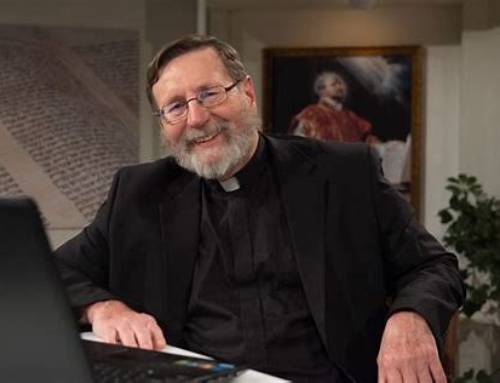Its traditional during Advent to preach about the four last things: Death, Judgement, Heaven and Hell.
But who preaches about hell these days and if not why not?
I’m afraid to say many preachers do not mention hell because they don’t actually believe in it, or if they do believe in it they think some sort of sentimental nonsense like, “I believe in hell, but I believe it is empty.”
I just don’t get this. Do they really honestly believe that some serial killer who kidnapped, tortured and raped little girls before dumping their bodies in a ditch, and who for the rest of his life mocked their parents, spat in the face of the judges and laughed at his victims should NOT go to hell?
We’re talking about a person who was unrepentant and who sneered at everything beautiful, good and true.
Shall we not believe in justice, and would it not be just for such a person to go to hell?
Saying everyone will go to heaven one day is not just wrong. It is silly.
Universalism is not only one of the worst heresies it is also one of the stupidest.
But universalism is a cancer eating away at the church and reminding readers that the Scriptures are clear that hell is a reality and it is likely to be highly populated.
Some might say that preaching about hell will drive people away. They assume that to preach about hell is to always be calling other people to repent of their sins (rather than oneself) and assuming that the preaching about hell must necessarily be of the raging and ranting Bible thumping style of preaching.
Not so. in his book Will Many be Saved? Ralph Martin gives great advice on how to speak about hell effectively. The key point he brings out is to look to Jesus who wept with compassion over the impending doom of the Jews. Any preaching about hell has to be from the perspective of the compassionate and concerned friend or family member who sees a much loved person making the wrong choice and heading for destruction.
Of course one can preach about hell in a judgmental, harsh and self righteous way. I am not advocating that, but I am making the point that the gospel without the reality of hell is a false gospel, and we are just as wrong to preach a gospel without hell as a cancer doctor would be by telling a person he can see is very sick with cancer that there is nothing wrong and they should just take a few aspirin and take more rest.
Here’s a faith story to make my point: a correspondent told me some time ago that she speaks about hell very clearly to people. She was working with a homeless fellow who was also a drunkard and a lapsed Catholic. She was helping him with his physical needs but she also said, “Jimmy, you’re living in sin. You haven’t been to Mass or confession in years. Your problems are huge, but your staying away from God is not helping. What if you were to die tonight? You’re in a state of mortal sin brother! You’d go to hell. Don’t you know that? Why don’t you come with me and we’ll go find Father Bob and he’ll hear your confession and get you right with God.”
She said the man looked at her in a shocked way, then thought about what she’d said and agreed to go to the priest.
This is a prime example of what I mean about speaking from the heart and the life of love. She was already involved helping that man and caring for him. Her exhortation about hell was simply part of her greater concern for his good.
This is how we speak about hell. With gentleness and love, with clarity and charity.
Speak about hell? Yes, but don’t Yell.







Father, what are your thoughts on Hans Urs von Balthasar’s book Dare We Hope That All Men Be Saved? especially the idea that Christ’s statements on Hell are more universalist after his Resurrection than before? I found this book very unsettling.
Carolyn